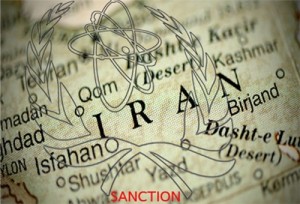 The prospect of access to�Iran�s $500 billion economy is tempting executives from countries including�France�and the Netherlands as negotiators resume their slog toward a nuclear deal.
The prospect of access to�Iran�s $500 billion economy is tempting executives from countries including�France�and the Netherlands as negotiators resume their slog toward a nuclear deal.Iranian Foreign Minister Mohammad Javad Zarif will meet European Union foreign policy chief Catherine Ashton Feb. 17 in Vienna. Diplomats from�China, France, Germany,�Russia, the U.K. and U.S., the so-called P5+1, convene meetings with their counterparts from Iran the following day.
It�s the first negotiation since the accord reached in Geneva in November, which entered force two months later. It froze Iran�s most sensitive nuclear work for six months in return for sanctions relief worth as much as $7 billion. While more than 100 commercial delegations have descended on the country since Rouhani took office in August, access to the market may be a long way off.
�Over the next year, it doesn�t appear very likely that there will be a comprehensive agreement,� Gary Samore, who advised President�Barack Obama�on arms control until last year, said in an interview. The U.S. wants �very significant restraints� on a nuclear program that Iran �hasn�t shown a willingness to abandon,� he said.
Talks to resolve the decade-long nuclear dispute gained pace following Obama�s September telephone call with Iranian President Hassan Rouhani. That 15-minute conversation, the first between leaders of their two countries since the 1979 Islamic revolution, set the initial stages for the breakthrough. Both men are now under pressure from those, including Israeli Prime Minister Benjamin Netanyahu and hardliners in Iran, who question the merits of compromise.
Worried Officials
The U.S. and its allies have demanded that Iran close an underground uranium-enrichment plant in Fordo, abandon its heavy-water reactor in Arak and impose limits on the amount of nuclear material it stockpiles, according to Samore, now a researcher at Harvard University who is also president of United Against Nuclear Iran, a New York-based advocacy group.
Iran has boosted its cooperation with international inspectors and suggested it�s willing to limit the size and scope of both its Arak reactor and uranium-enrichment program. The country has steadfastly refused to stop all enrichment, as United Nations Security Council resolutions demand.
�Obama himself sometimes makes comments which worry Iranian officials,� said Amir Mohebian, head of the Tehran-based Arya Strategic Studies Center, in a telephone interview. �They speak of dismantling. This is revelatory of the scenario to come� and �can be harmful and dangerous,� he said.
Pushing Boundaries
The current interim agreement, which eases curbs on trade in auto and airplane parts, precious metals and petrochemicals, may be extended if the sides can�t win a new agreement by July, according to U.S. officials who asked not to be identified because of the sensitivity of the talks.
Iran has hosted company officials and trade groups from Europe and across the world in the last quarter.�Turkey, Italy and France sent delegations. Rouhani wooed companies including Total SA Chief Executive Officer Christophe de Margerie last month in Davos, Switzerland.
�These firms and trade diplomats quickly used the new opening of the interim deal to try and regain some of their previous footholds,� said Heinrich Matthee, a Brussels-based research director at the Institute for Near East and Gulf Military Analysis. �The fear of losing out to competitors means that many companies will push the boundaries of the possible.�
Psychological Barrier
At a press conference Feb. 11 with French President Francois Hollande in Washington, Obama warned companies not to overreach. �Businesses may be exploring, are there some possibilities to get in sooner rather than later if and when there is an actual agreement,� Obama said. �They do so at their own peril right now because we will come down on them like a ton of bricks.�
The U.S. Treasury�said Feb. 6�it had imposed penalties on companies operating out of countries including�Germany, Switzerland, Turkey and the United Arab Emirates for violating sanctions.
�Pressure by companies in U.S.-allied nations to enter the Iranian market has increased,� Mohebian said. �The psychological barrier has been lifted and this can be a boon for Iran.�
It�s unlikely that European businesses will make any commitments before a final agreement is reached, according to France�s former ambassador to Iran, Francois Nicoullaud.
�Sanctions forbid trade and investments, they do not forbid talking,� Nicoullaud said in an e-mail. �This was perfectly understood by the French businessmen who went recently to Iran.�
�Perverse� Effects
Testifying in a Senate hearing last week, Wendy Sherman, the No. 3 State Department official who will head the American delegation next week, said that rather than pressuring the U.S. and its allies, Iran�s efforts to attract business now �perversely� put pressure on the country itself to make a final deal.
Iran�s negotiators �have been the driving force in the negotiation up to now,� Nicoullaud said. �They want to go fast.�
By Bloomberg
The Iran Project is not responsible for the content of quoted articles.










